Latest
Rumors Swirling That Fed Chair Jerome Powell To Step Down To Avoid Investigation

Rumors are swirling in D.C. financial and political circles that Federal Reserve Chairman Jerome Powell may soon resign — or at the very least, is under heavy pressure to do so. The chatter gained momentum after a wave of backlash over a massive $2.5 billion renovation of the Fed’s headquarters in Washington, D.C., which critics are now calling the “Palace of Versailles” scandal.
The renovation was originally pitched as necessary maintenance and modernization, but reports quickly surfaced describing high-end luxury features like VIP dining rooms, private elevators, rooftop gardens, and marble finishes — all while Powell had told Congress there were no extravagant plans. That contradiction has caused a firestorm, especially among conservatives and Trump-aligned voices who are accusing Powell of misleading lawmakers and hiding the true scope of the project.
One of the first to sound the alarm was Bill Pulte, Director of the Federal Housing Finance Agency, who publicly stated he’s “encouraged” by reports that Powell is considering stepping down. Senator Tim Scott has also blasted the project, comparing it to French royalty and calling it out of touch with struggling Americans. President Donald Trump has since joined the criticism, urging an investigation into how the Fed’s renovation budget ballooned from $1.9 billion to $2.5 billion — and what Powell knew and when.
While Powell insists the claims about the luxury upgrades are “misleading and inaccurate,” documents obtained by watchdog groups seem to paint a different picture. They confirm the existence of some of the very amenities Powell denied. That contradiction is now being used by the White House and Trump-appointed officials as potential grounds for an ethics probe or forced resignation.
Despite the noise, Powell cannot be fired easily. The Fed Chair enjoys significant legal protections and can only be removed “for cause,” which requires clear evidence of misconduct. Disagreeing with the president over policy or design costs doesn’t meet that standard. However, Trump’s strategy may not be about firing Powell outright — rather, making his position so politically toxic that he steps down on his own.
To that end, the White House has restructured the Fed’s building oversight commission, replacing Powell’s allies with Trump loyalists who are expected to push for greater transparency and spending accountability. This behind-the-scenes pressure is part of what’s fueling speculation that Powell could choose to resign rather than endure ongoing public scrutiny and internal resistance.
Jerome Powell has made it clear that he intends to serve out his full term, which runs through May 2026. When questioned directly about the resignation rumors, Powell deflected and doubled down on his commitment to the Fed’s core mission: fighting inflation and supporting job growth. In recent public comments, he also explained that high tariffs and persistent inflation risks are the reason why the Fed has held off on rate cuts, though he remains open to loosening policy if data warrants it.
Still, the damage may already be done. Multiple news outlets have confirmed that the Fed was aware of budget overruns as early as last year but failed to disclose them. On top of that, multiple Senate Republicans are now threatening to subpoena internal documents and emails related to the HQ project, which could expose more inconsistencies or embarrassing details.
Interestingly, markets have reacted in a mixed way. Yields on Treasury bonds have climbed slightly, suggesting investors believe Powell will stay — but many also believe Trump could soon appoint a more dovish successor. Names floated include Kevin Warsh, Kevin Hassett, and even Scott Bessent, Trump’s Treasury Secretary. All of them are seen as likely to push for aggressive rate cuts, especially ahead of the 2026 election cycle.
Financial insiders say Wall Street is preparing for “Powell fatigue” — even if he doesn’t step down immediately, the pressure from both ends of Pennsylvania Avenue could hamper his ability to act independently. That could have major implications for interest rates, inflation management, and long-term economic stability.
Jerome Powell is in hot water — not necessarily because of his monetary policy, but because of what many now see as a serious lapse in transparency and accountability. The Fed’s headquarters renovation scandal has cracked open a deeper debate about elitism, trust, and the politicization of central banking. If Powell resigns, it will be a massive moment — both politically and economically.
For now, he says he’s staying. But if the pressure keeps building, he may not have that luxury for long.
-
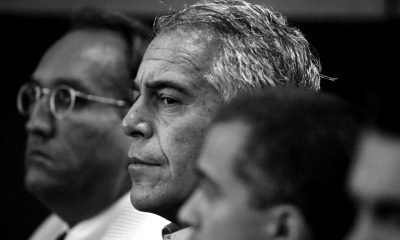
 Latest7 months ago
Latest7 months ago𝗔𝗹𝗹 𝗼𝗳 𝘁𝗵𝗲 𝗻𝗮𝗺𝗲𝘀 𝗺𝗲𝗻𝘁𝗶𝗼𝗻𝗲𝗱 𝗶𝗻 𝘁𝗵𝗲 𝗻𝗲𝘄 𝗝𝗲𝗳𝗳𝗿𝗲𝘆 𝗘𝗽𝘀𝘁𝗲𝗶𝗻 𝗱𝗼𝗰𝘂𝗺𝗲𝗻𝘁𝘀.
-

 Latest10 months ago
Latest10 months agoParis Hilton and Kanye Connected? “They Held Me Down, Spread My Legs…” [WARNING: Graphic]
-
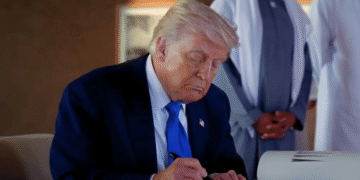
 Latest8 months ago
Latest8 months agoHistoric Verdict Rocks America — Donald Trump Officially Convicted in a Turning Point No One Saw Coming
-

 Latest9 months ago
Latest9 months agoAlex Jones Exposes What’s Going On With Dan Bongino
-

 Latest7 months ago
Latest7 months agoProminent Republican Politician SWITCHES To Democrat Party
-
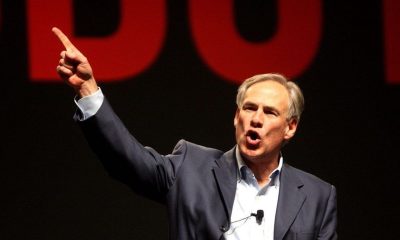
 Latest7 months ago
Latest7 months agoBREAKING: Supreme Court Responds to Gov. Greg Abbott’s Emergency Petition to REMOVE Runaway Democrat Leader
-
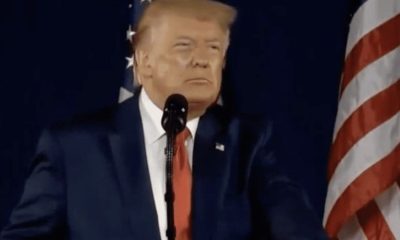
 Latest7 months ago
Latest7 months agoBOMBSHELL: President Trump Confirms Joe Biden Dead Since 2020!
-
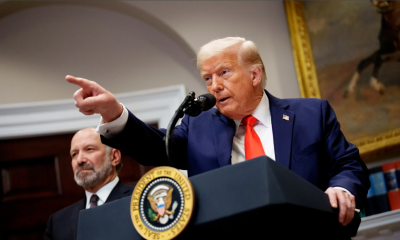
 Latest8 months ago
Latest8 months agoBREAKING: President Trump drops a new message for America — and it changes everything.
